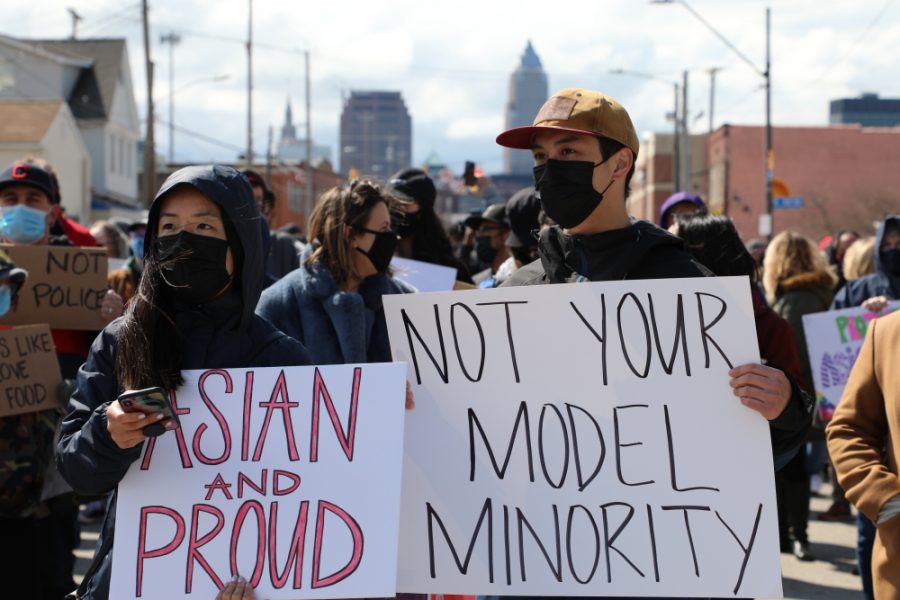May is Asian American and Pacific Islander Month
Attendees of the Stop Asian Hate March in Cleveland, Ohio on March 28, 2021.
May 4, 2022
May marks the official celebration of Asian American and Pacific Islander (AAPI) heritage in the United States.
Although AAPI people are often lumped together in the same ethnic category, the large group comprises people with backgrounds from Southern and Southeast Asia, Central Asia, Western Asia, the Indian subcontinent, and the Pacific Islands. Each background has its own unique culture, language, and history.
Asian Americans have experienced a massive rise in anti-Asian hate crimes during the COVID-19 pandemic. While May is certainly not the only time to learn about and support Asian Americans, it does provide an opportunity to discover the history of the different cultures of AAPI people and the contributions they’ve made to American society.
Following a congressional resolution passed in 1978, Asian Americans and Pacific Islanders were originally commemorated during the first week of May. It wasn’t until 1992 that the entire month of May was designated to observe AAPI heritage with activities, programs, and ceremonies.
May marks two significant events in Asian American history—the arrival of Japanese immigrants to the US on May 7, 1843, and the anniversary of the completion of the first US transcontinental railroad on May 10, 1869. Chinese railroad workers were essential in connecting Americans across the country by train.
The railroad stretched from the West Coast to the East Coast, and 15,000 to 20,000 Chinese immigrants were an integral part of its construction. Conditions were brutal in the Sierra Nevada, and Chinese workers weren’t receiving the same pay as their white counterparts. Unlike white workers, Chinese workers had to pay for their own food and were forced to work longer hours. The railroad was fundamental to the development of the American West. It cut travel time across the US from months to less than a week.
This year’s AAPI Heritage Month theme is “Advancing Leaders Through Collaboration,” selected by the Federal Asian Pacific American Council in its continuing attempts to promote more Asian American leaders in local and federal government.
Cynthia Choi, co-executive director of Chinese for Affirmative Action and co-founder of Stop AAPI Hate, says the month is a time to speak out, share stories, and debunk myths about Asian communities.
“Our history is also filled with incredible stories of resilience, of persistence, of determination to fight for our basic rights,” Choi said. “This is a celebration of our history, of our culture, and all the different ways in which our community has really demonstrated that we’re not only here to stay, we are a part of this fabric—a part of this country.”


